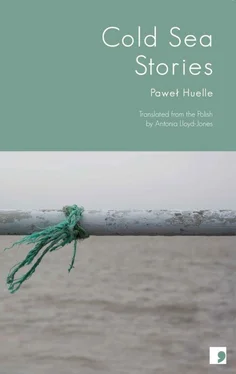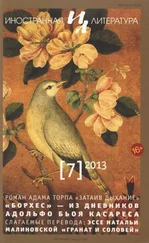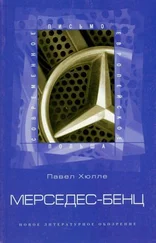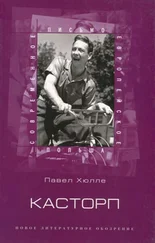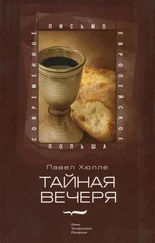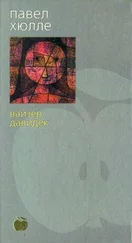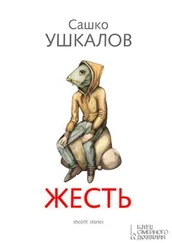The couple in front of him vanished through the lighted doorway of the boarding house. In the car park where, since dusk, more than a dozen cars had managed to accumulate, there was still lively activity going on. Two Land Rovers had just driven up with yellow, Dutch registration plates, one from Breda and the other apparently from Utrecht. He did not know their language well, but it was obvious that both drivers, who were the first to jump out of the cars, were arguing about the route they had taken: it was meant to have been one way, but they had gone another and got lost. A third and fourth man who suddenly appeared in the headlights, were trying to make peace, and then two others, who got out last, started urging them to unload the luggage. There was an incredibly large amount of it. By their very nature, the suitcases, holdalls, bags and boxes brought the feuding couple together and toned down the Dutch hullabaloo, but only to a certain degree: as they carried it all into the vestibule, the Dutchmen continued to shout at each other in guttural syllables, jostling each other and dropping their parcels; finally they moved the cars, which wasn’t easy, as several more vehicles had arrived at the car park by now.
As he entered the dining hall, he was no longer in any doubt that the entire boarding house had been hired for a private party. The waiters were not taking any orders, just supervising a buffet table and drinks. He did find it amusing; above a stage hung a sign saying ‘Gay European Union for Poland’, and there were colourful objects hanging from lines stretched from wall to wall, as for a New Year’s Eve ball. Most of them were beach inflatables, representing male members of gargantuan size blooming out of a scrotum, but he also noticed some imitation baroque angels among them, with coiled willies like small horns and also some blow-up plastic effigies of rock stars, among which he recognised the immortal face of Freddie Mercury. Only a while later, as he was eating a sandwich, did he spot one of the Dutchmen: now he was wearing a vicar’s uniform. Holding a glass of wine, he was having a lively conversation with someone in German.
‘Is there going to be a service?’ he asked the man standing next to him.
‘Don’t you know?’ wondered the nice, rather tubby man. ‘Pastor van der Ecke is conducting a wedding ceremony today. It’s the first one in Poland. Not legally binding,’ he giggled, ‘because for us it’s not legal, but a wedding’s a wedding. The couple have just gone to get changed. And what about you?’ His interlocutor looked at him keenly. ‘Are you alone?’
‘Alone,’ he repeated unsurely, then immediately added, ‘Come here on my own? No, I’m with Sabine.’
‘Sabine? I don’t know him.’
‘It’s a sort of nickname.’
The other man lost interest and wandered off to the buffet table. Mentally he was already composing a letter to Sabina, which should start with the words: ‘The main thing is to be in the right place at the right time’. But once he had waited a quarter of an hour, roaming the crowded room with glass in hand and being picked out every now and then by someone’s inquiring look, he felt the sort of weariness that evolves into irritation. There was clearly a long time to go until the ceremony, and ultimately, did he have to watch it? He went over to the bar and bought a small bottle of whisky, some nuts and some mineral water. As she handed him the change the lovely barmaid, dressed in a double-breasted man’s suit, put a packet of condoms on the counter.
‘On special offer from the association,’ she explained, ‘scented ones!’
Without a word he shoved the Gay Union gift into his pocket, and thus equipped, headed upstairs to his room.
II
He was never so happy. They rode along country roads, with no fixed plan, just following their noses. He was on a Soviet Ukraina and Sabina was on an East German ladies’ bike. His was new, while hers carried the evidence of numerous modifications, and every few kilometres the chain fell off. At state-farm shops they bought bread, margarine, tinned fish and tomatoes. Sometimes, when they spotted a bottle of Bulgarian wine on a dusty shelf, they took a box of biscuits to go with it. In his pannier there was a tent, and Sabina was carrying two sleeping bags in hers. But they didn’t always feel like putting up the poles, spreading out the canvas and sticking in the pegs. They spent their first night under the open sky by the campfire, on a bend in the river. On the other side of the Vistula, where the ferry took them, they slept in an enormous haystack. Their exams were behind them. He had won a place at university, and Sabina had got into the medical academy. Through four years of high school they had taken no notice of each other. Only at the graduation ball, when he asked her to dance for the third time, had they shyly kissed, their lips hardly touching. Now, when they were together, Sabina had an extremely gentle way of cooling his desire; ‘Not yet,’ she would say, when he tried to part her thighs; ‘Not yet,’ she would whisper, as she returned his kisses.
Past the second or third house with a portico, right next to a stinking concrete cowshed from the 1950s, beside a pond covered in duckweed, they came upon a Mennonite cemetery. He caught a glimpse of a different Sabina. As if in a trance, she walked from gravestone to gravestone, touching the crumbling, moss-coated slabs. ‘Were they Jews?’ she asked him timidly, ‘or maybe Germans?’
As the two bikes slowly rode alongside each other, down a canal, he had a great deal to tell her. She was amazed that the people who created polders here out of the marshes of the delta were governed by the Bible, even in the pettiest matters, such as waistcoat hooks and eyes. And why had they travelled all the way here from Holland? She wasn’t in the least bit interested in royal privileges, or in rents and taxes. But when he spoke about religious persecution in the Netherlands, she wanted to know if the Catholics cited the Bible as an authority too.
‘And what happened to them all in the end?’ she asked once they had ridden further, across a wooden drawbridge. He didn’t have a ready answer to every question. But Sabina was enchanted anyway as if, in the geometric lines of poplar trees, willows and fields bordered by canals, she had suddenly caught a glimpse of a completely different world. ‘The People of the Book,’ she said, raising her head from the handlebars to look at him, ‘could you call them that?’
Then they rode all the way to the dunes and the pine trees, pitched their tent in a clearing next to an abandoned house, swam in the sea or lay about on the sand, feeling the flow of time idly slow down. Far beyond the village there was a holiday park, and occasionally a couple of beachgoers walked past their den but, for the greater part of the day, they were completely alone.
‘This place was waiting for us from the start,’ said Sabina.
The first time, they made love on the beach in full sunlight, straight after bathing.
As he kissed her wet skin he knew this fragrance and this light belonged to the summer for ever more, as did the roar of the sea, and the clouds like ships with fantastically stacked-up sides. The path they took back to the clearing was coated in a soft carpet of moss. Sabina loved the feel of it, and watched as the imprint of her foot disappeared far more slowly here than on the wet sand along the seashore.
‘I could go on like this for all eternity,’ she laughed. ‘If only the summer would last for ever.’
But, like a tree stump etched by the heat of the sun, August was just starting to sink under its own weight, down into the dark well of time, whence in a short while no light would return. The nights were very cold. One time, wrapped in a blanket, they sat out on the beach until dawn without seeing any more falling stars. In the distance, banks of purple clouds were drawing in from the direction of the Soviet border. A thick fog shrouded them on the path between the dunes. He was walking only a few metres behind Sabina, guided by the sound of her soft footsteps. Around a corner, where the track climbed sharply uphill, he sensed he was alone. ‘Sabina?’ he called in a hushed tone, ‘Are you there?’
Читать дальше
